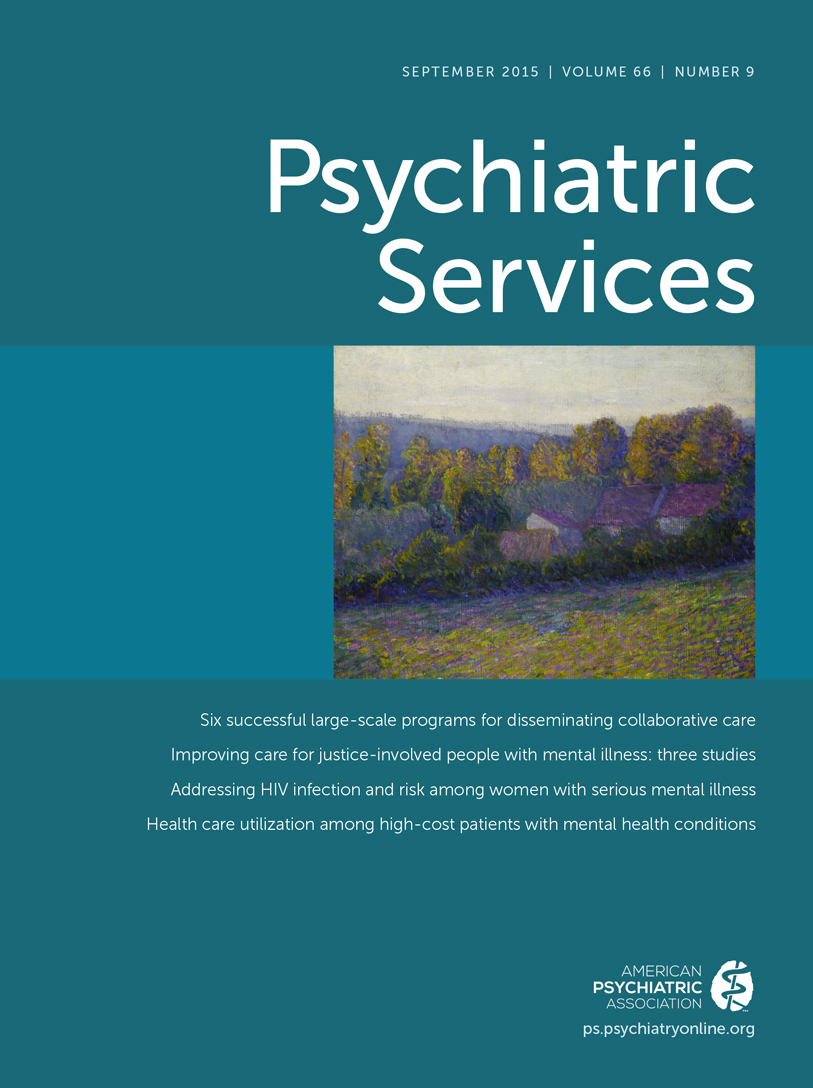Socioeconomic Status and Mental Health Service Use Among National Guard Soldiers
Abstract
Objective:
Convergent evidence suggests that low socioeconomic status (SES) may be related to reduced mental health service use. However, this relationship has not been tested in the National Guard (NG) population, in which the prevalence of mental health symptoms is high.
Methods:
Surveys were completed by 1,262 NG soldiers. SES was measured by education and income. Adjusted multivariable regression models assessed associations between SES, overall service use, and use of specific types of services.
Results:
SES was not associated with overall use but was associated with use of certain types of services. Higher SES was associated with lower likelihood of psychotropic medication use (odds ratio=.83, 95% confidence interval=.72–.96), and higher SES strengthened the positive relationship between PTSD and use of individual therapy.
Conclusions:
Higher SES may increase the use of individual therapy among soldiers with PTSD. Barriers to care among individuals with low SES merit continued attention and outreach efforts.



